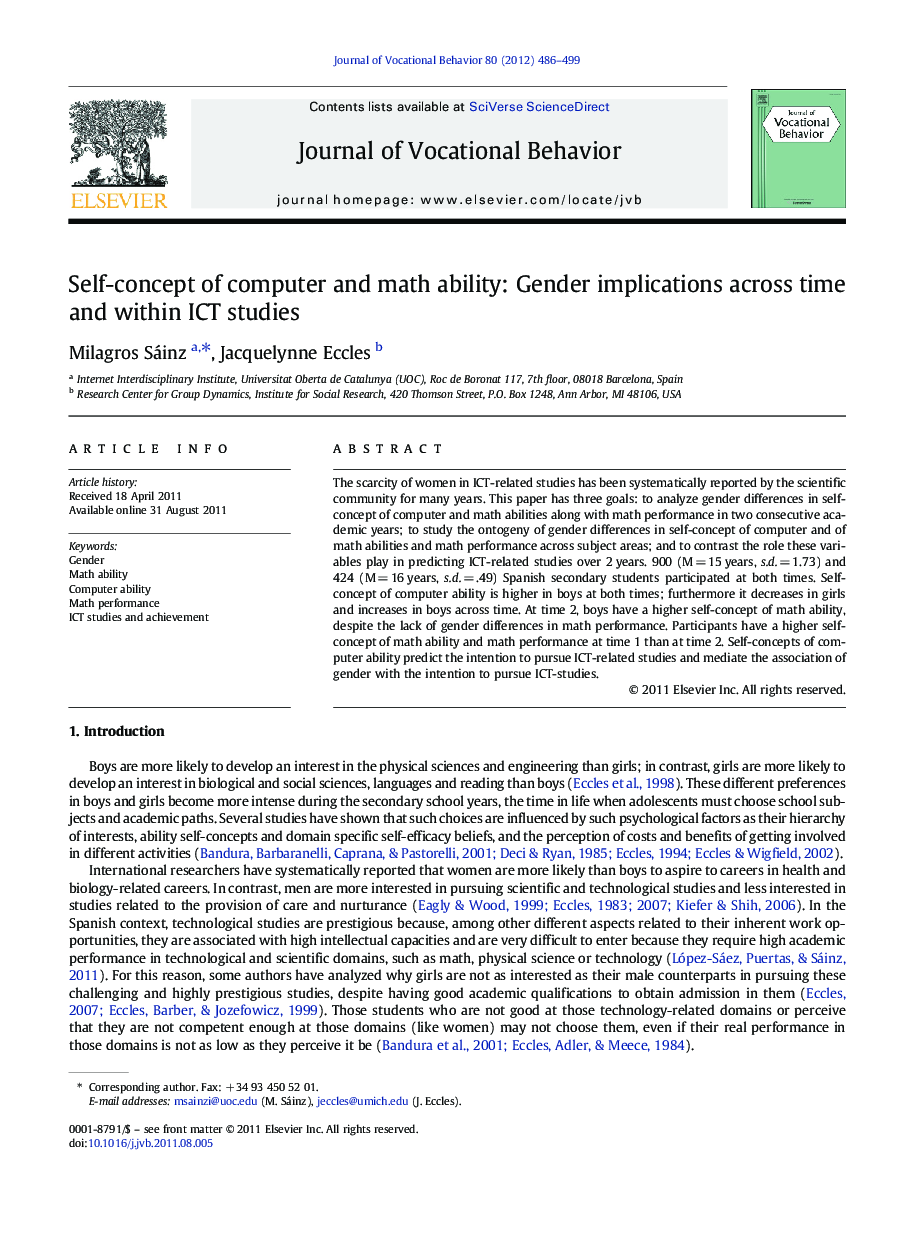| کد مقاله | کد نشریه | سال انتشار | مقاله انگلیسی | نسخه تمام متن |
|---|---|---|---|---|
| 887091 | 913161 | 2012 | 14 صفحه PDF | دانلود رایگان |

The scarcity of women in ICT-related studies has been systematically reported by the scientific community for many years. This paper has three goals: to analyze gender differences in self-concept of computer and math abilities along with math performance in two consecutive academic years; to study the ontogeny of gender differences in self-concept of computer and of math abilities and math performance across subject areas; and to contrast the role these variables play in predicting ICT-related studies over 2 years. 900 (M = 15 years, s.d. = 1.73) and 424 (M = 16 years, s.d. = .49) Spanish secondary students participated at both times. Self-concept of computer ability is higher in boys at both times; furthermore it decreases in girls and increases in boys across time. At time 2, boys have a higher self-concept of math ability, despite the lack of gender differences in math performance. Participants have a higher self-concept of math ability and math performance at time 1 than at time 2. Self-concepts of computer ability predict the intention to pursue ICT-related studies and mediate the association of gender with the intention to pursue ICT-studies.
► Gender disparities in self-concepts of math and computer ability were examined.
► A gender effect for math ability self-concept emerged.
► The type of Bachillerato chosen moderated the gender differences in all variables.
► Over time boys' self-concept of computer ability increased, while girls' decreased.
► Self-concept of computer ability mediated ICT-related aspirations.
Journal: Journal of Vocational Behavior - Volume 80, Issue 2, April 2012, Pages 486–499